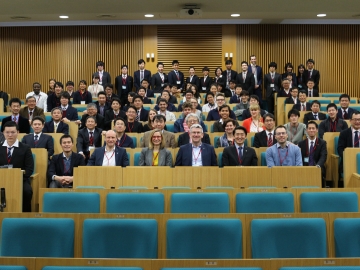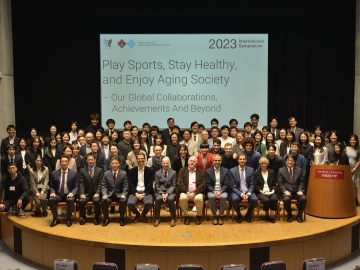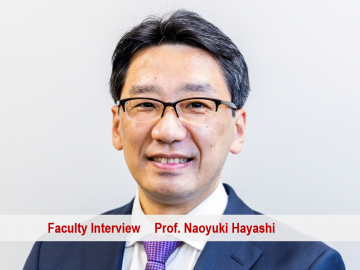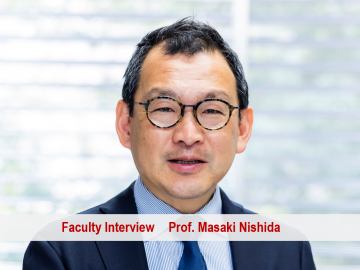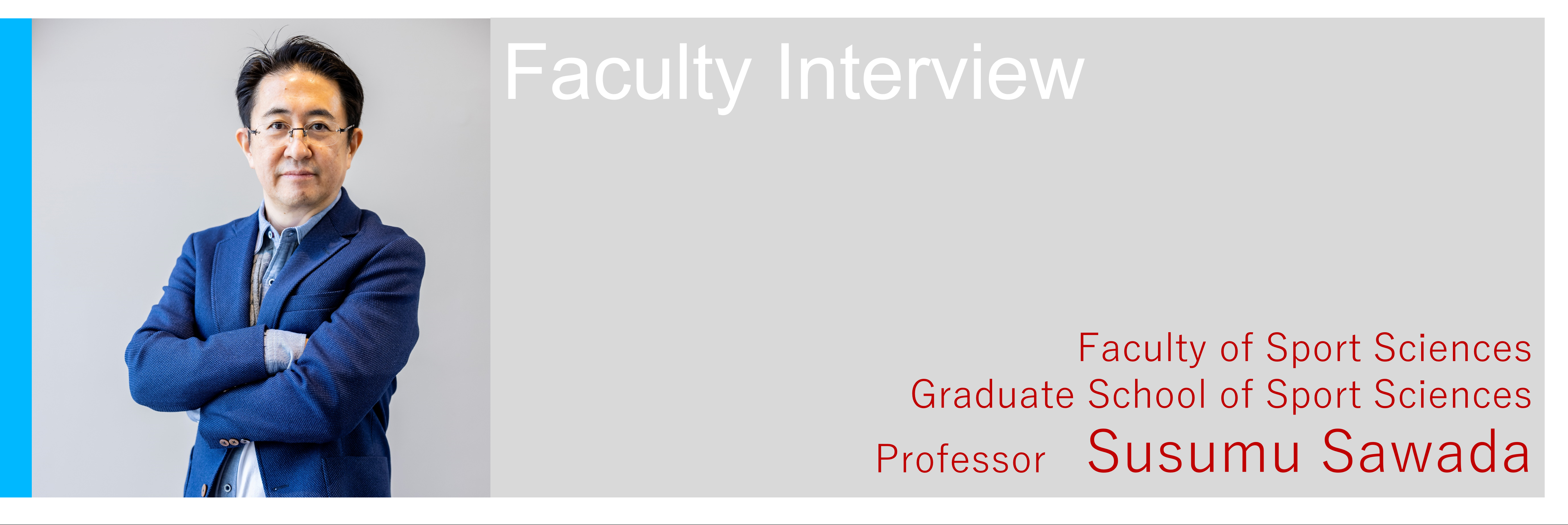 Contributing to People’s Health and Happiness by Promoting and Encouraging Physical Activity through Research in Sports Epidemiology
Contributing to People’s Health and Happiness by Promoting and Encouraging Physical Activity through Research in Sports Epidemiology
Explaining the Value of Physical Activity in Scientific Terms
Our lab specializes in sports epidemiology. Epidemiology is a practical discipline that uses scientific comparisons to provide evidence that can be used to solve problems and issues in human groups. By learning which approaches are effective and to what degree, we can discover solutions with greater speed.
In sports epidemiology, we approach issues in sports and physical activity from an epidemiological perspective. We conduct a lot of comparative research on the theme of the relationship between physical activity/fitness and health. We have shown, for example, that higher levels of physical activity are correlated with lower rates of diseases such as diabetes and cancer.
Alongside these studies, we are also pursuing research on the effect that physical activity and fitness have on brain health (subjective happiness, health-related quality of life, etc.) and the sensory organs (hearing, sight, etc.). We’ve confirmed that people who maintain high levels of cardiorespiratory fitness are less likely to suffer from hardness of hearing, glaucoma and similar ailments. These findings hold great significance from the standpoint of supporting cognitive function.
Research Projects by Interdisciplinary Teams
What we’re currently focused on is research on the effects on the health and subjective happiness of spectators and fans when they watch sports or cheer for a sports team. Sports can be something one does, watches or supports. Until now we’ve made considerable progress in research on sports as something one does, but the effects of watching and cheering remain unexplored.  We want to find answers to questions about the long-term effects on mental and physical health of being an enthusiastic sports fan, as opposed to being uninterested in sports.
We want to find answers to questions about the long-term effects on mental and physical health of being an enthusiastic sports fan, as opposed to being uninterested in sports.
At the Faculty of Sport Sciences, we’re implementing a team research project called Comprehensive Sports Science Research on the Mental and Physical Health and Quality of Life of Sports Fans. This project involves the cooperation of researchers in diverse fields, embracing not only sports epidemiology but also sports culture, sports management, mental health, sports medicine and behavioral science, among others. We are investigating the value of watching sports from many angles. This multi-dimensional research project would not be possible without Waseda University’s Faculty of Sport Sciences, whose faculty includes researchers in such a wide range of fields. Many graduate students at our lab, both Japanese and international, participate enthusiastically in our work, including through online surveys and data analysis.
Maintaining Strong Public-Health Awareness
I hold one-on-one interviews with each student once every six months, providing individual instruction focused on self-motivation and aspiration. I pay particular attention to supporting students in acquiring skills that match their desired career paths after graduation. Epidemiology is a practical discipline; one of its benefits is that the techniques learned here can be readily applied in the working world, whether in the private or the public sector. I myself worked in the private sector for 27 years, so I strive to apply that experience in practical literacy training. We collaborate on joint research with a wide range of companies, as well as with researchers at overseas institutions such as Harvard University and the University of South Carolina, so communication skills are essential here.
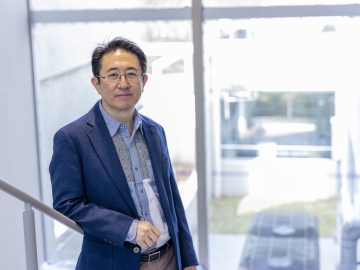 The mission we share at this lab is to contribute to society through epidemiological research on physical activity. Sports epidemiology is a discipline well suited to people with a strong awareness of public health—people dedicated to the health of their region or organization. Come join us, and we’ll work together on research to contribute to people’s health and happiness through sports.
The mission we share at this lab is to contribute to society through epidemiological research on physical activity. Sports epidemiology is a discipline well suited to people with a strong awareness of public health—people dedicated to the health of their region or organization. Come join us, and we’ll work together on research to contribute to people’s health and happiness through sports.
Profile
Professor Nishida specializes in sleep medicine and psychiatry. He graduated with a doctoral degree from the Faculty of Medicine, Tokyo Medical and Dental University (TMDU). Doctor of Medicine. He served as a resident at the National Center of Neurology and Psychiatry, and research fellow at Harvard University, before working as an assistant professor at the Faculty of Medicine of TMDU, lecturer at Jichi Medical University and visiting lecturer at Stanford University before joining the Faculty of Sport Sciences in 2017 as an associate professor. He was appointed to his current post in April 2023.
Related faculty interview articles
- Interview article on Professor Naoyuki Hayashi of our Faculty of Sport Sciences on the theme of “Investigating the Physical Changes and Physiological Mechanisms Associated with Exercise.” To learn more, read the article here!
- Interview article on Associate Professor Masaki Nishida of our Faculty of Sport Sciences on the theme of “Pursuing Wellbeing by Elucidating the Relationships Among Sleep, Sports and Mental Health.” To learn more, read the article here!
